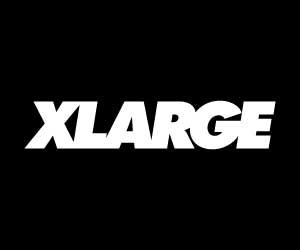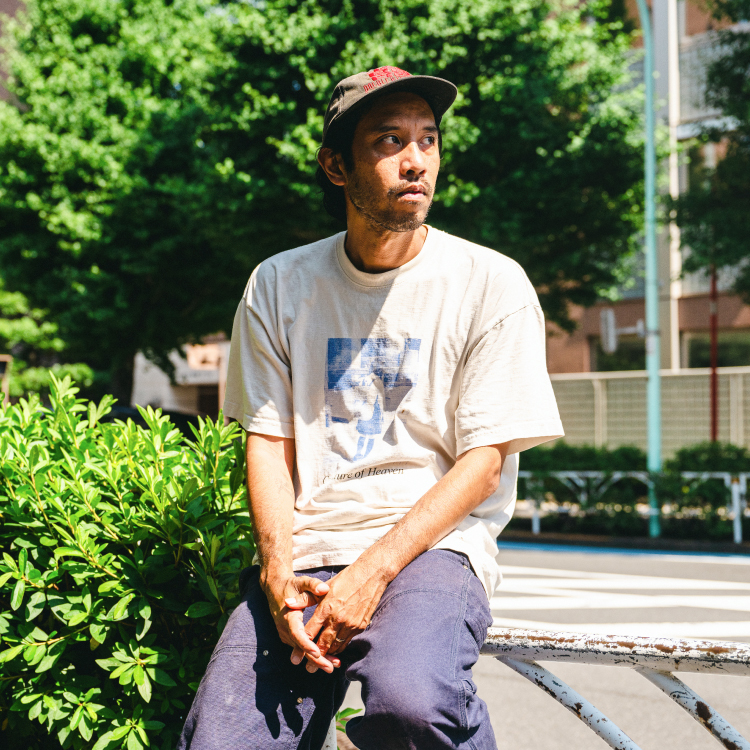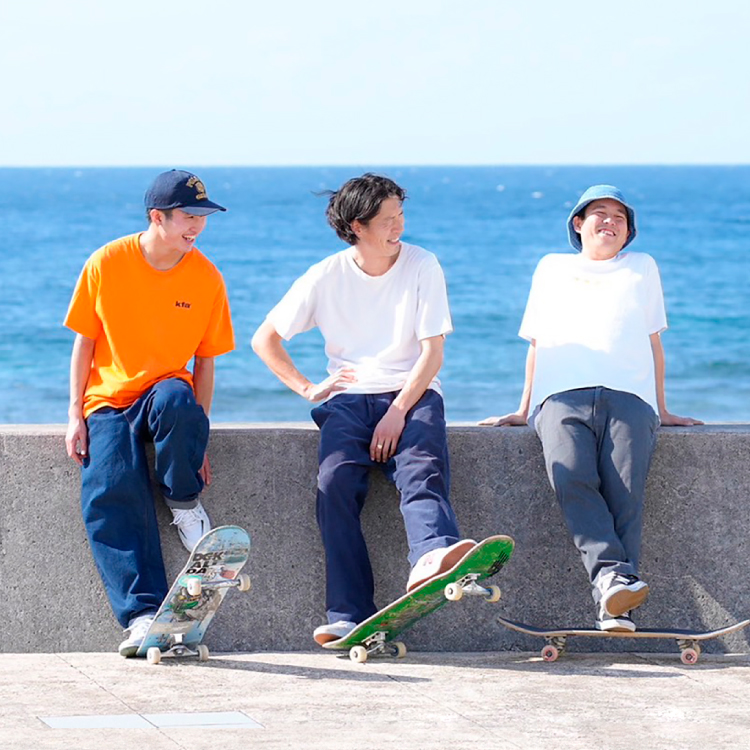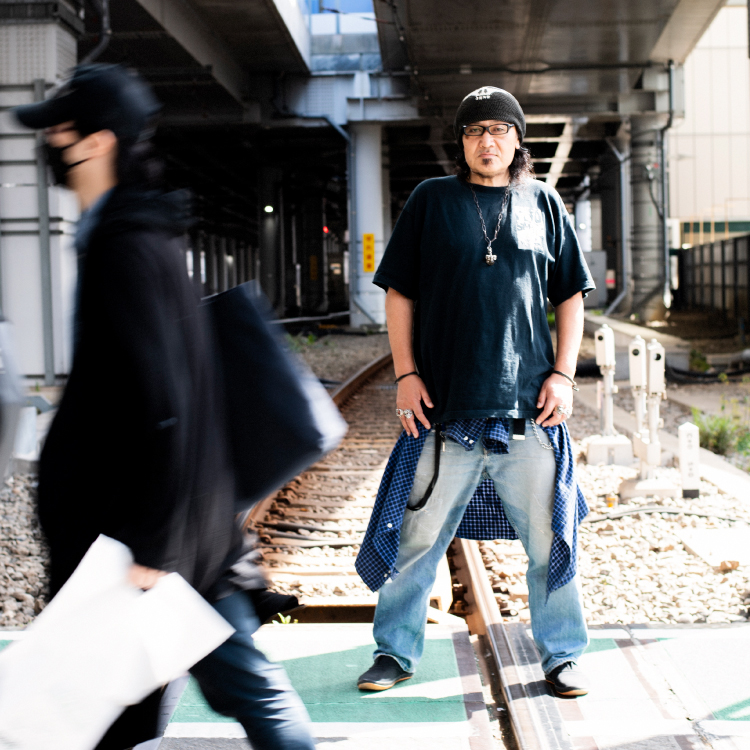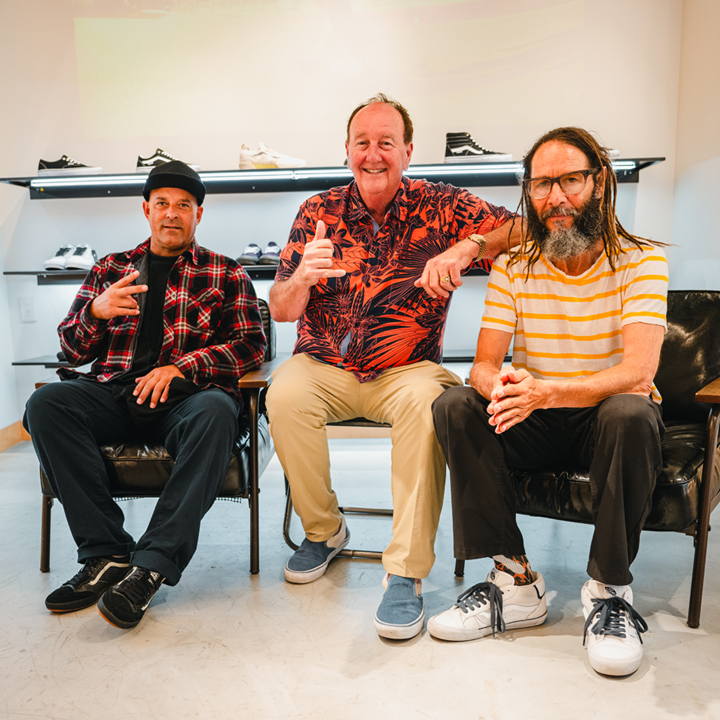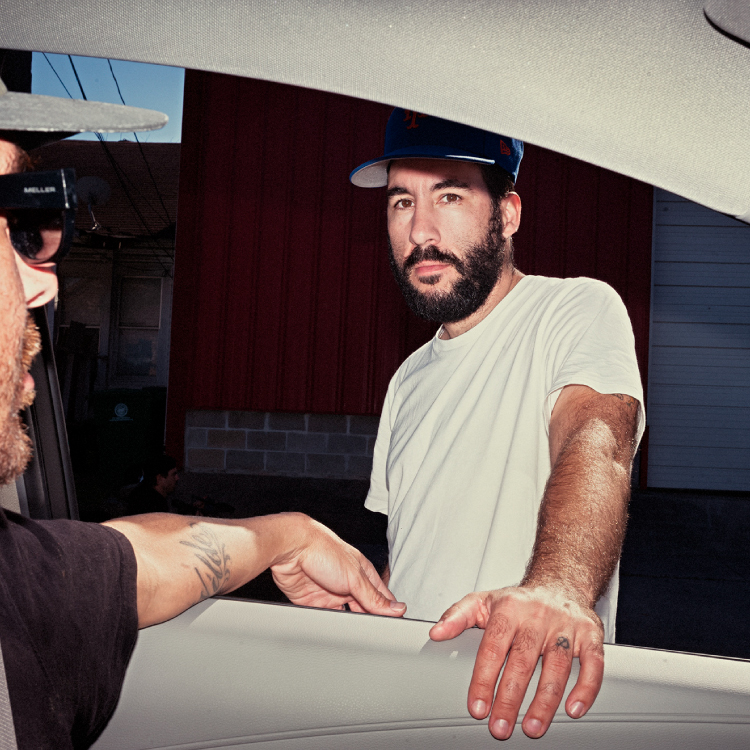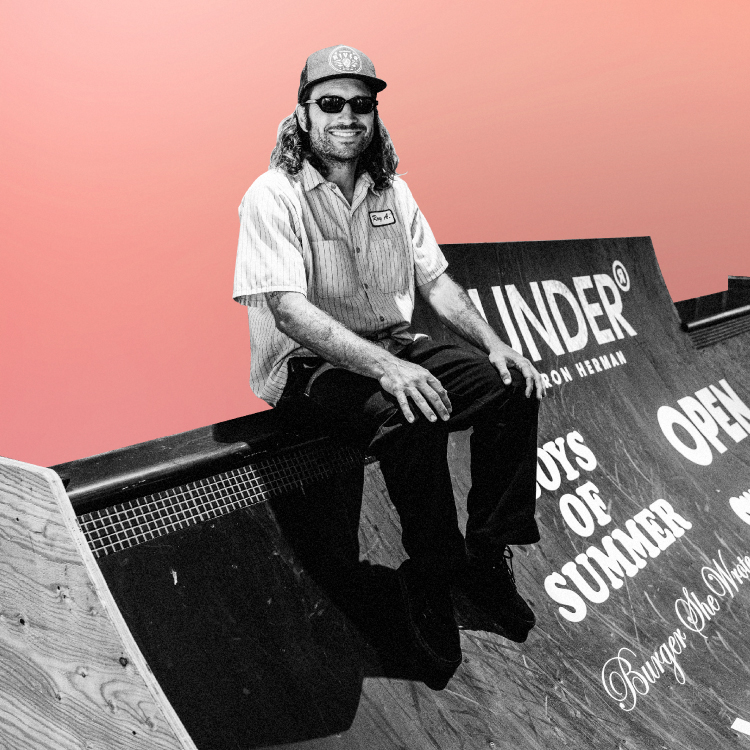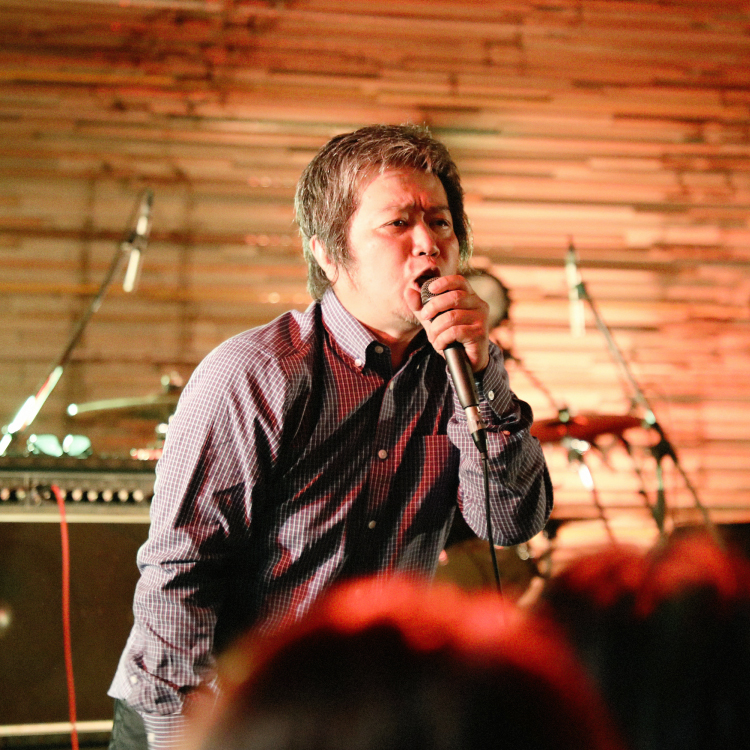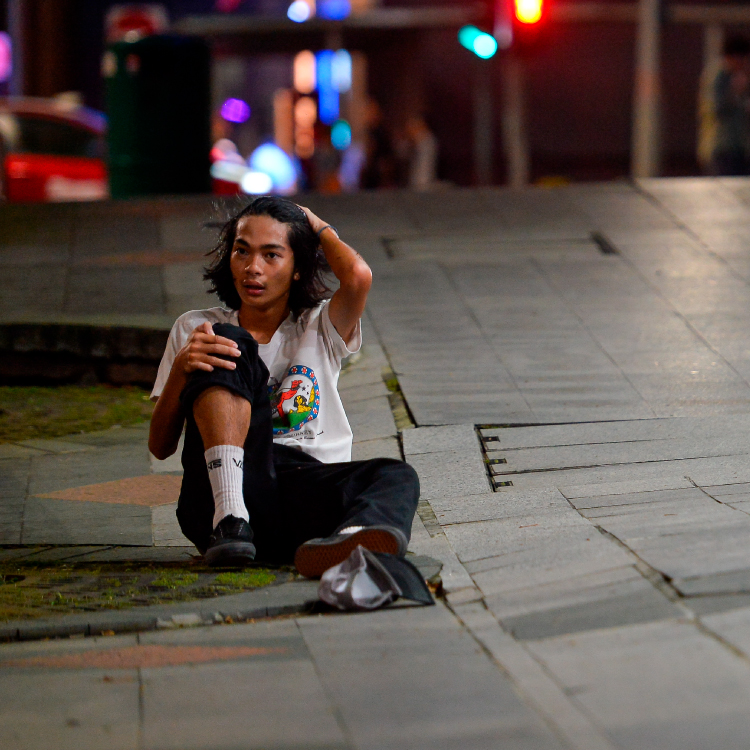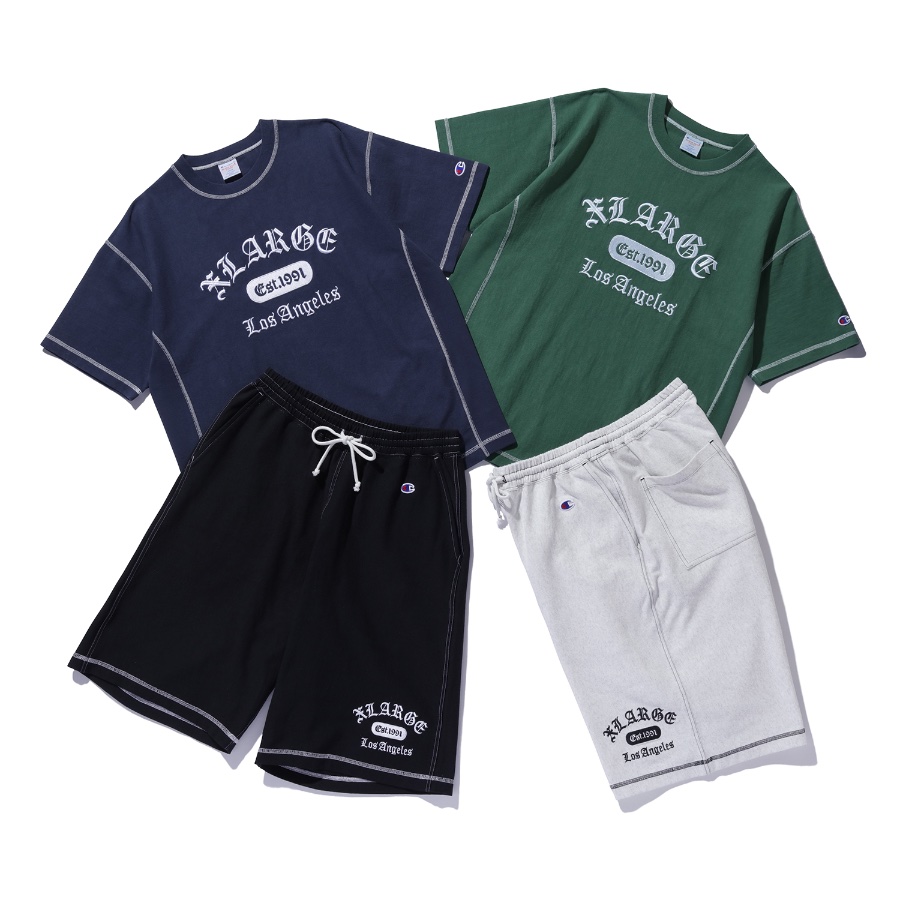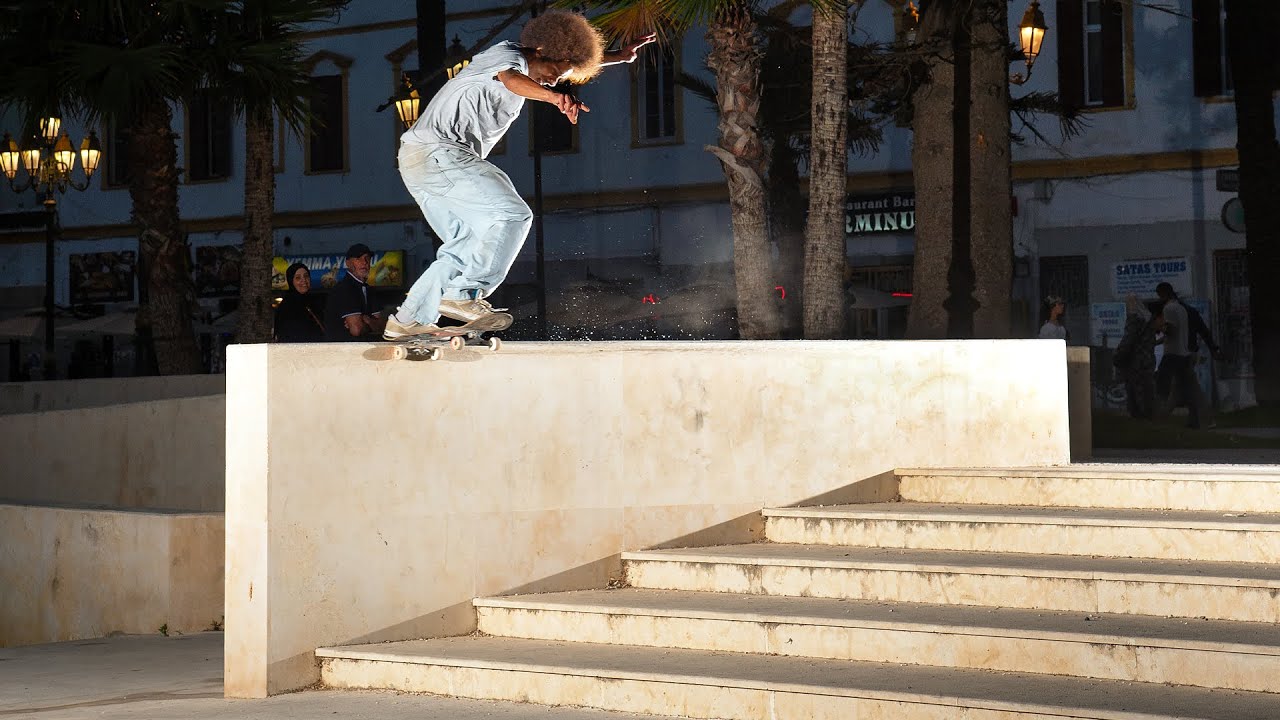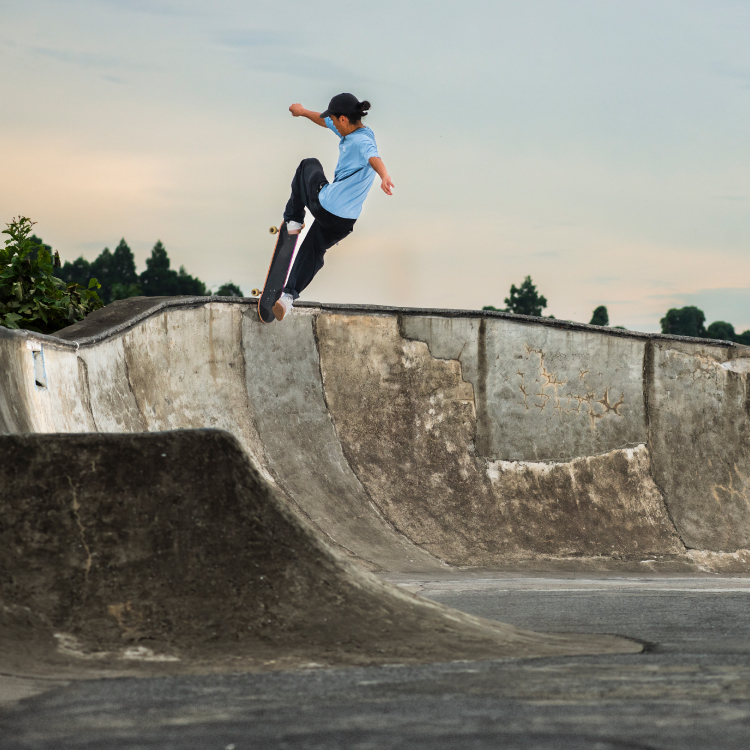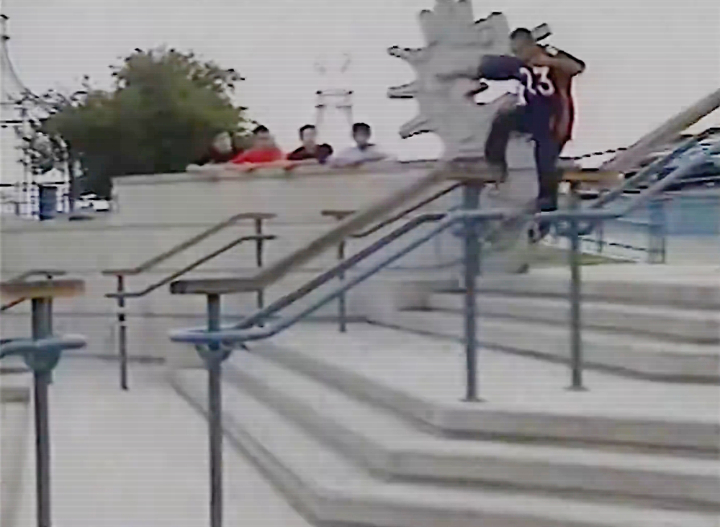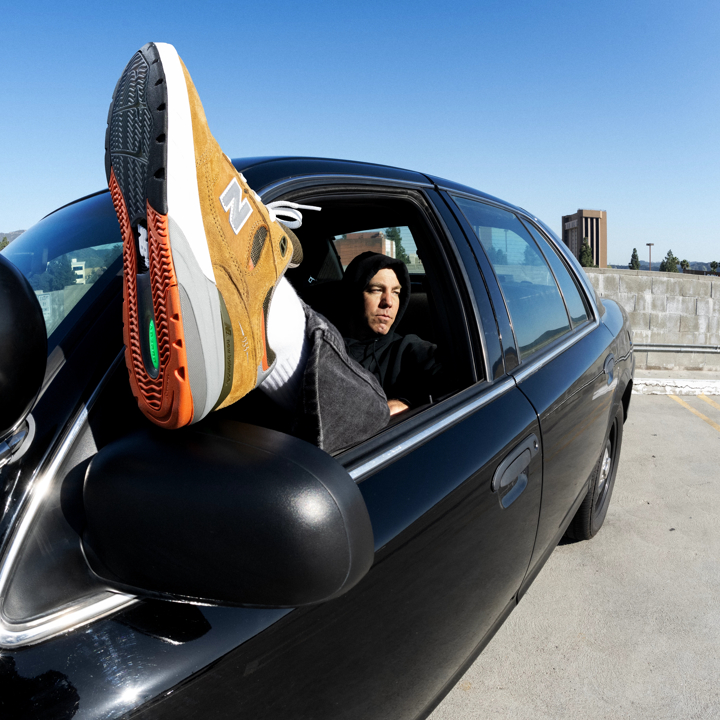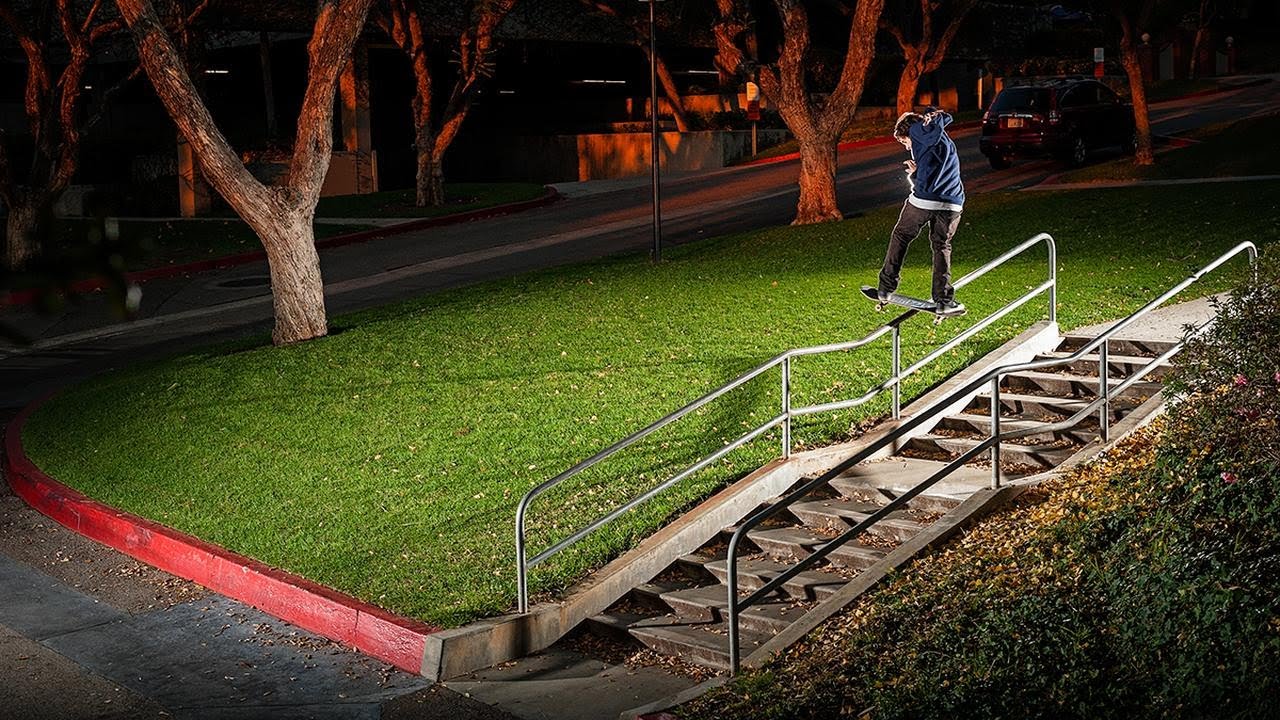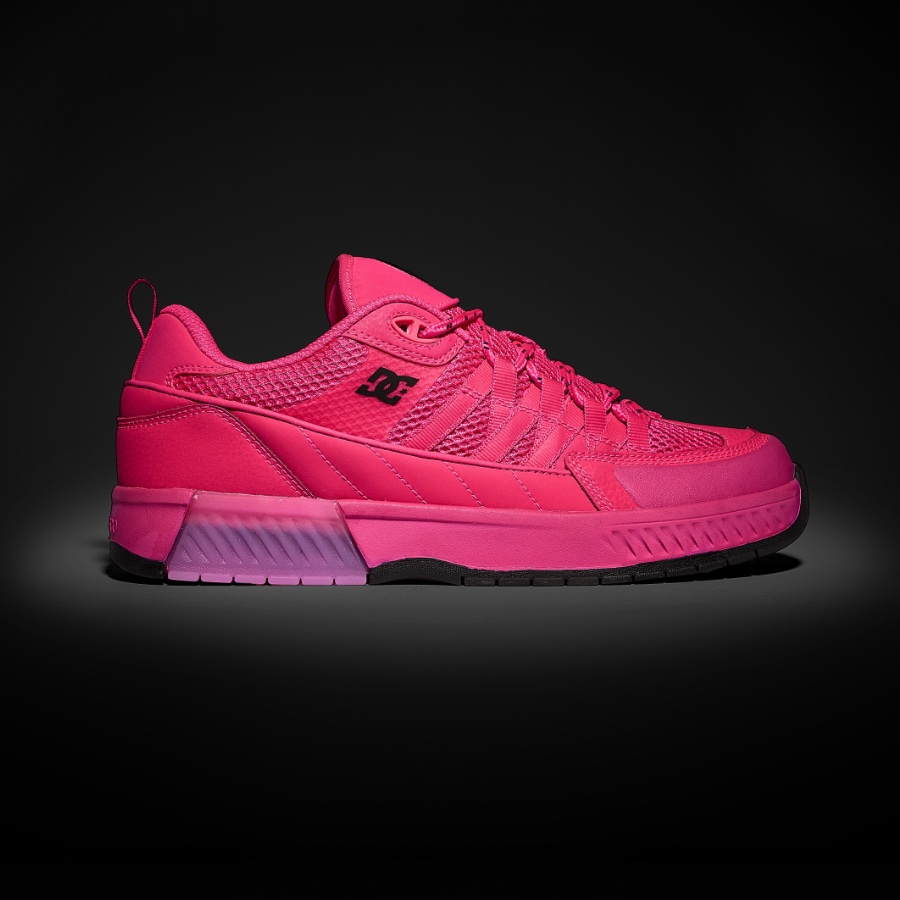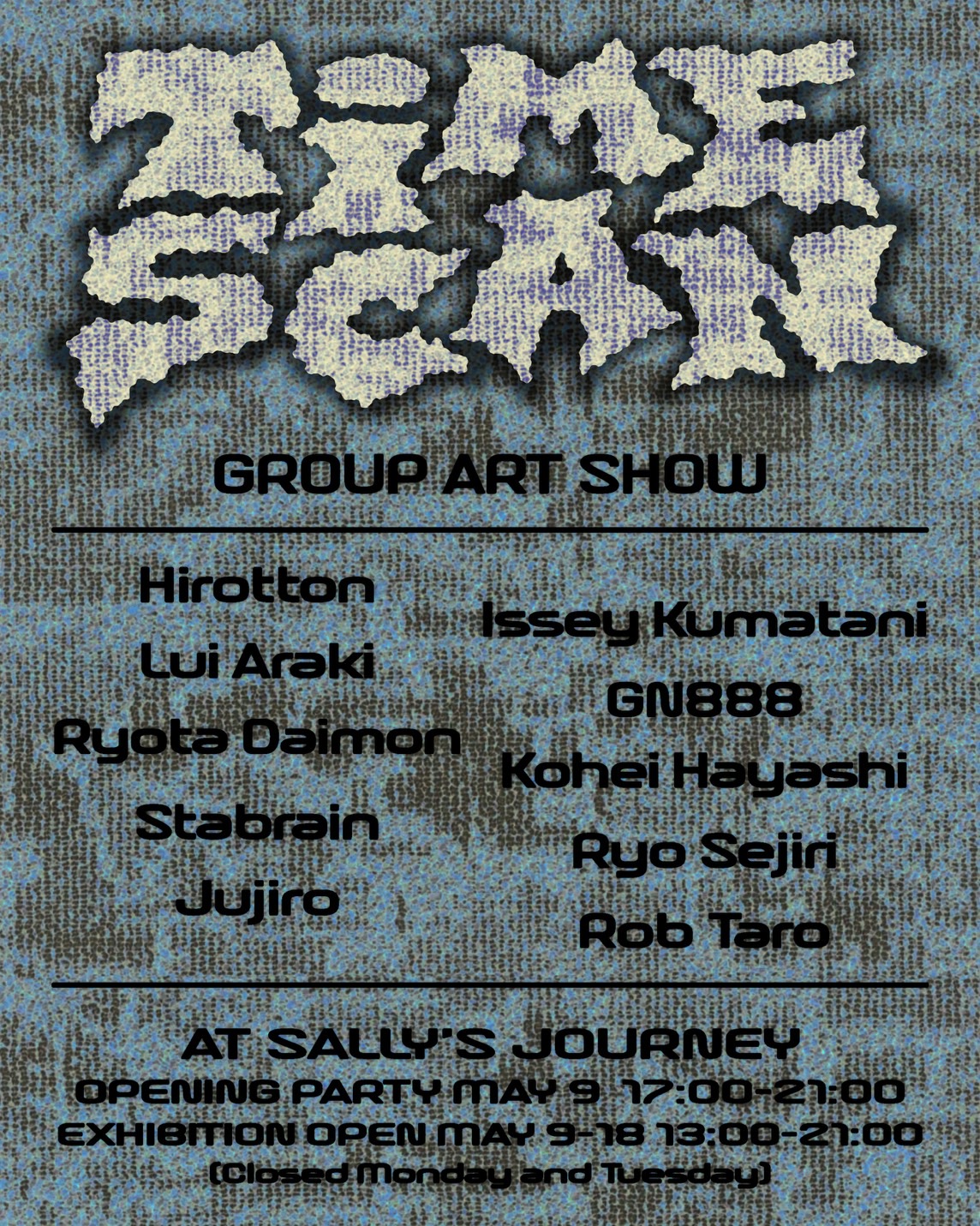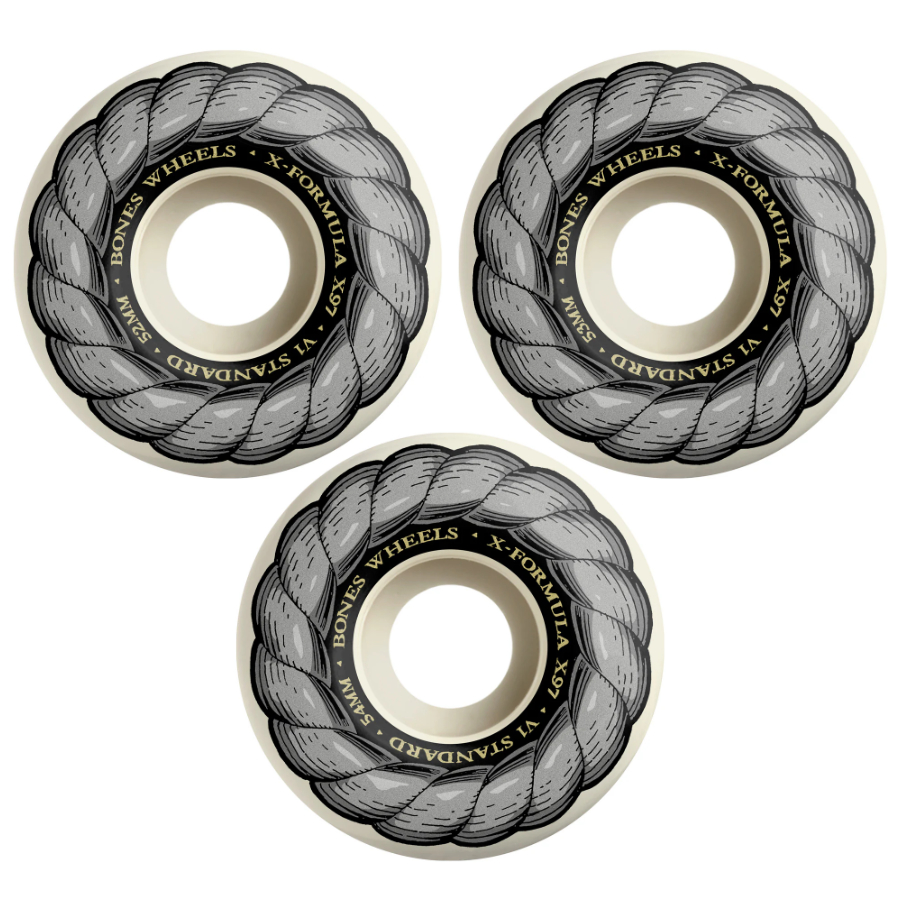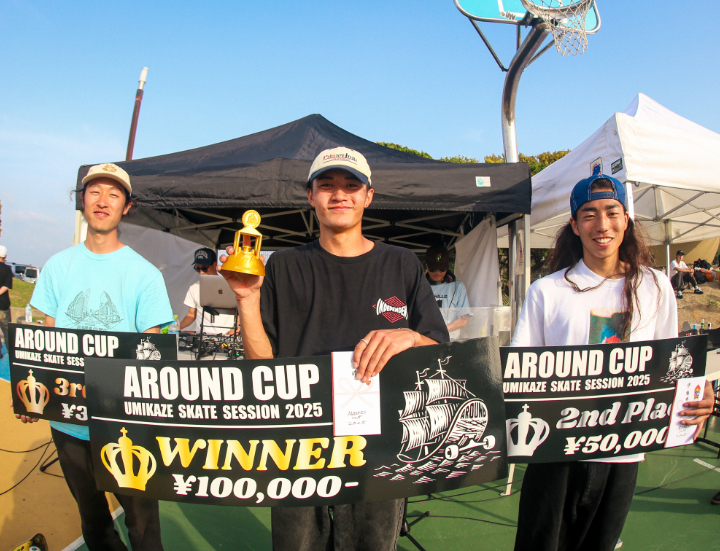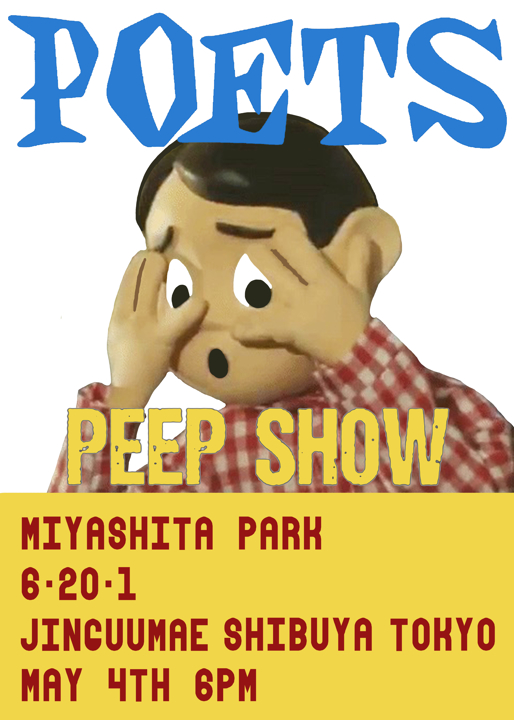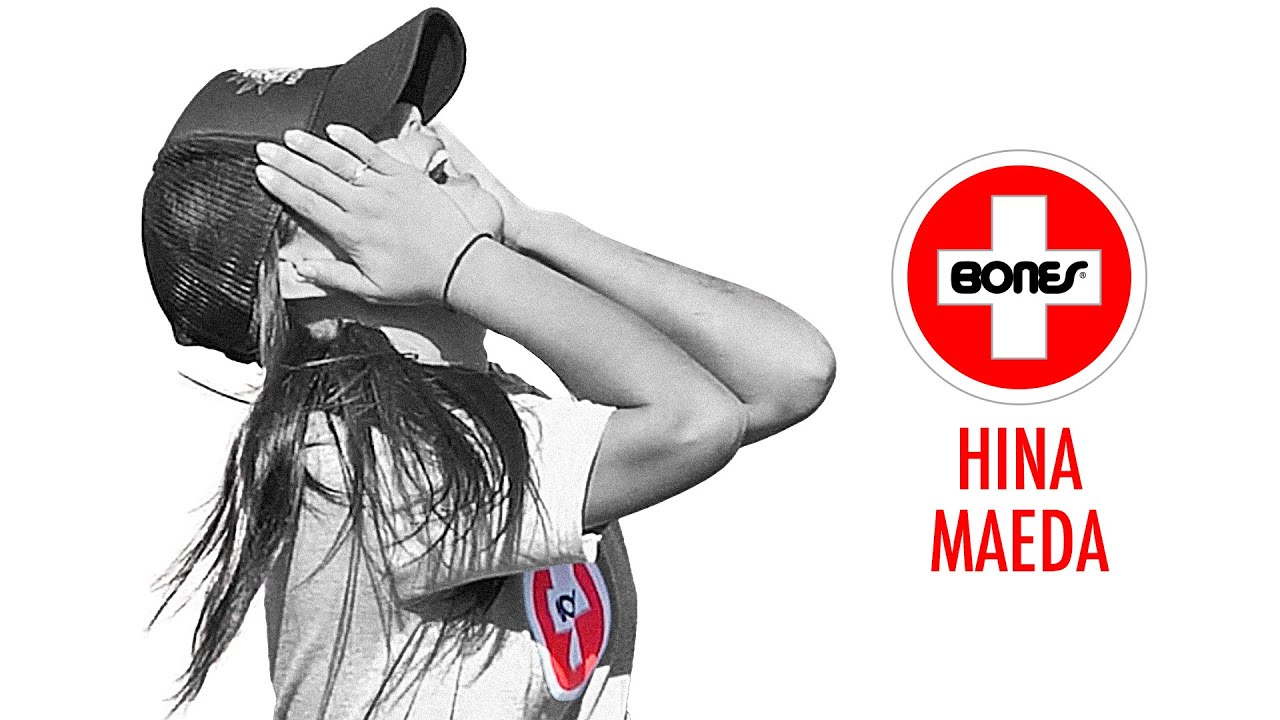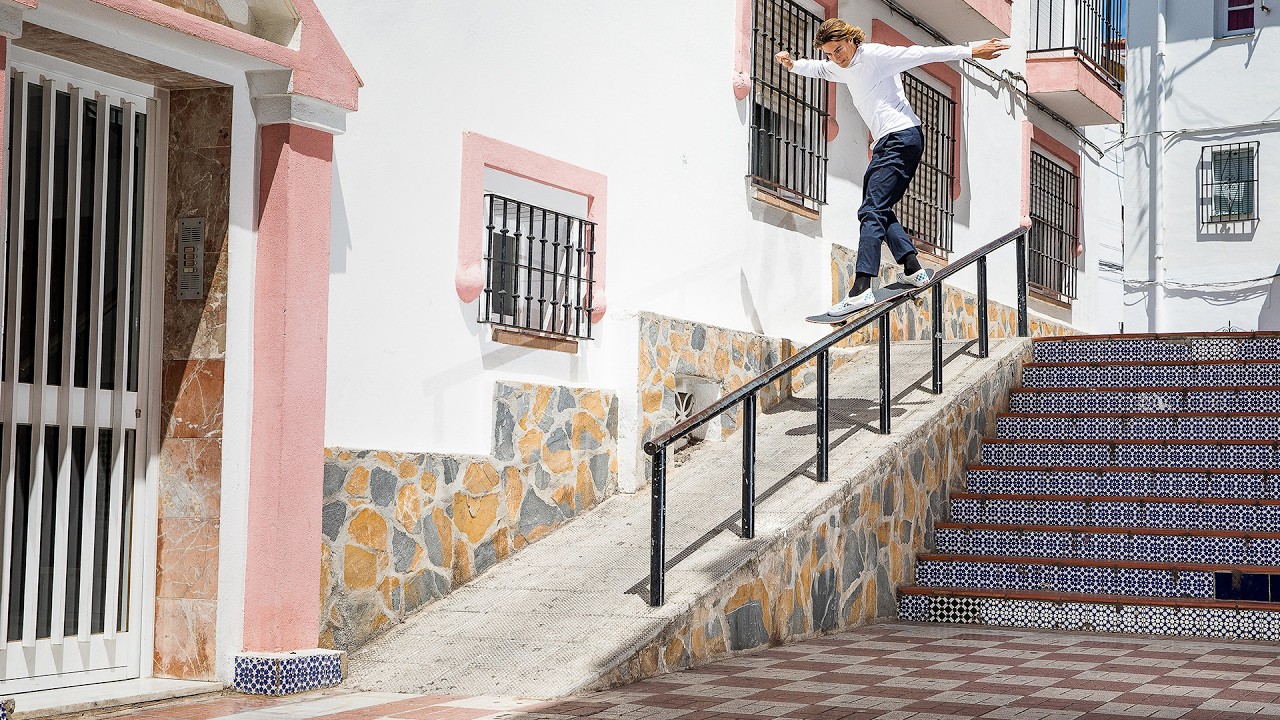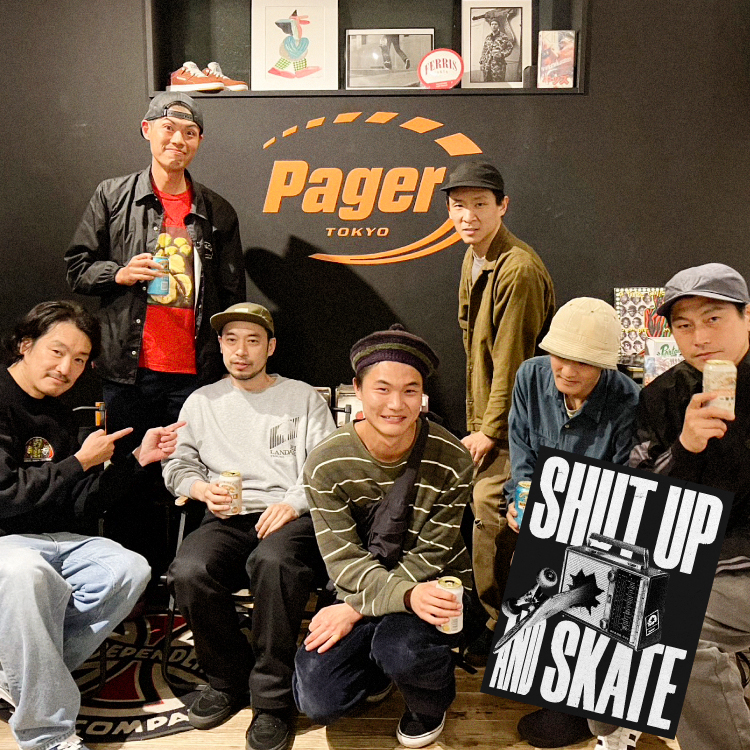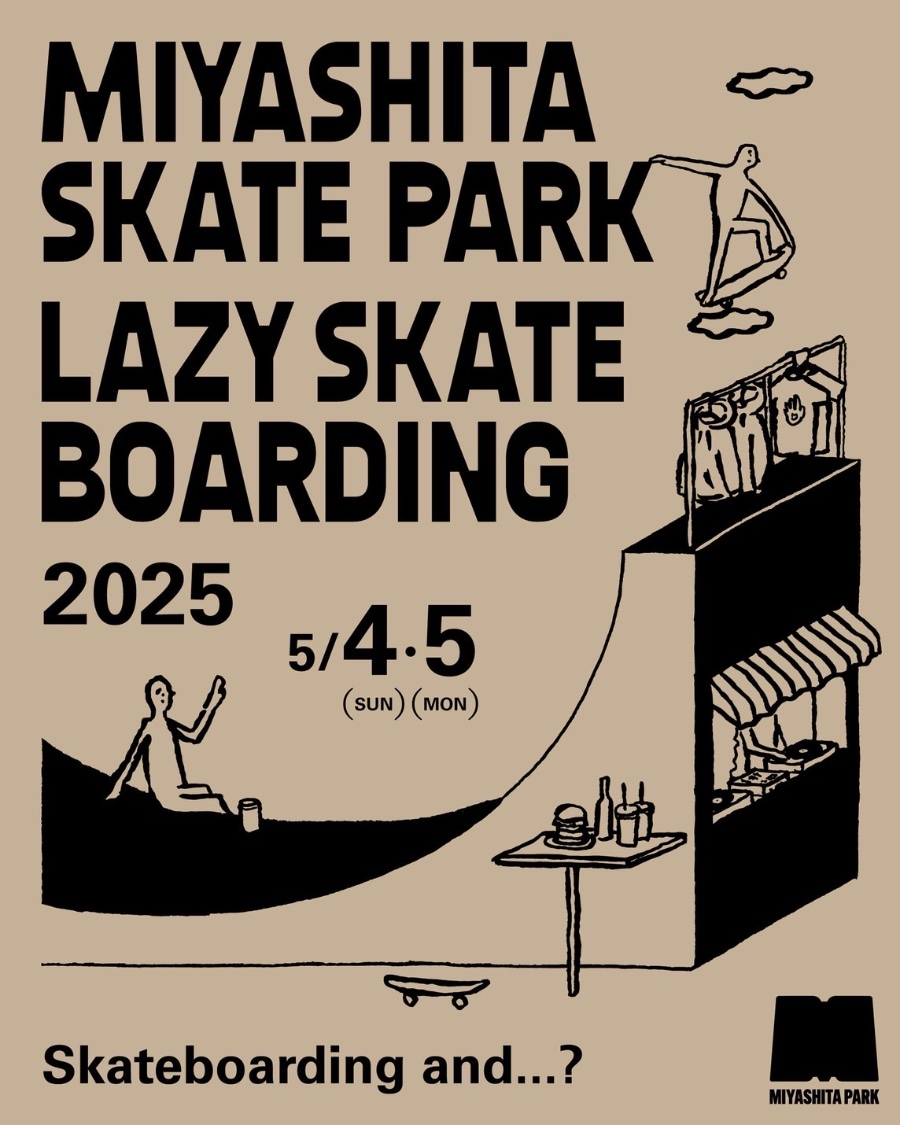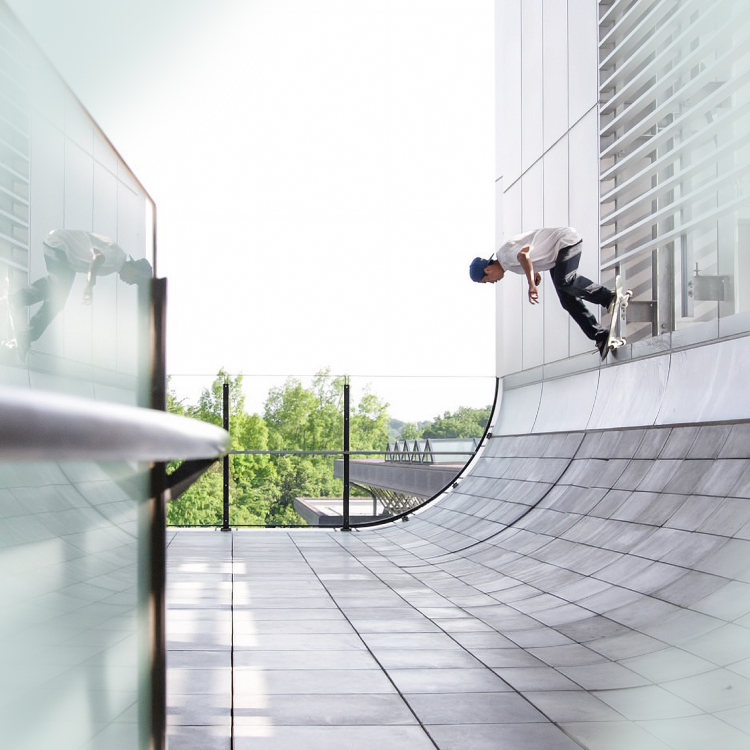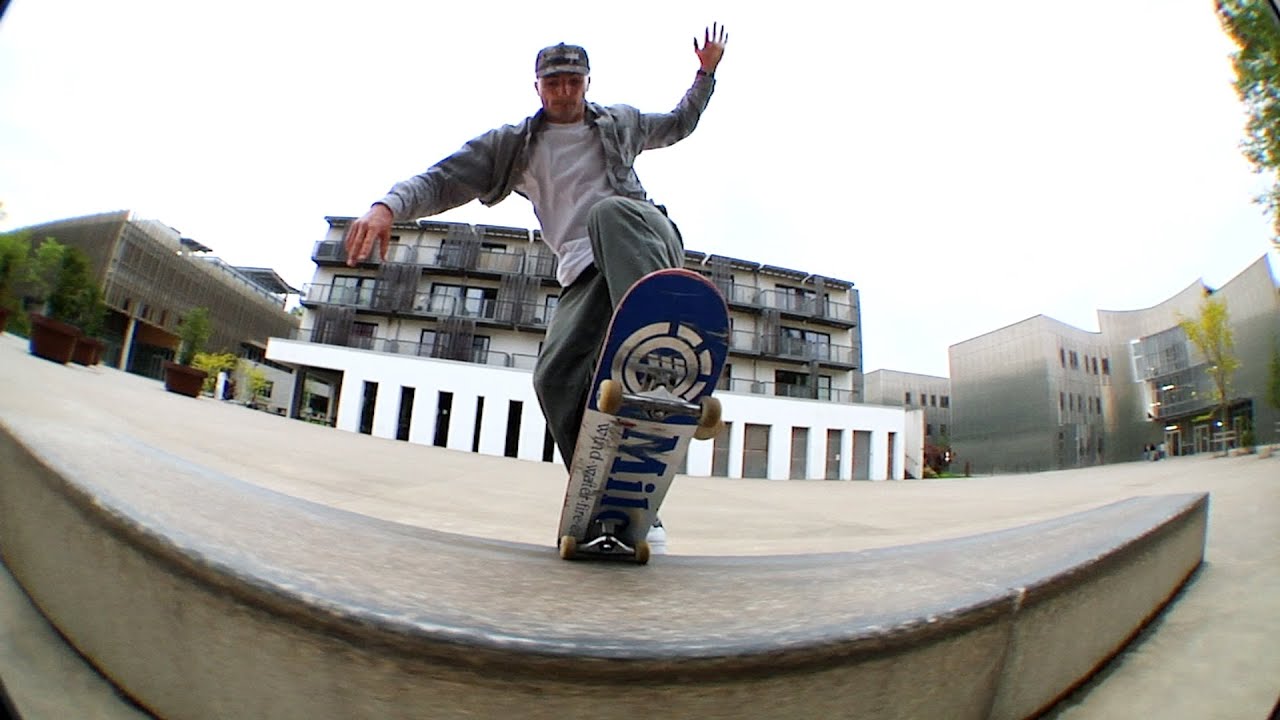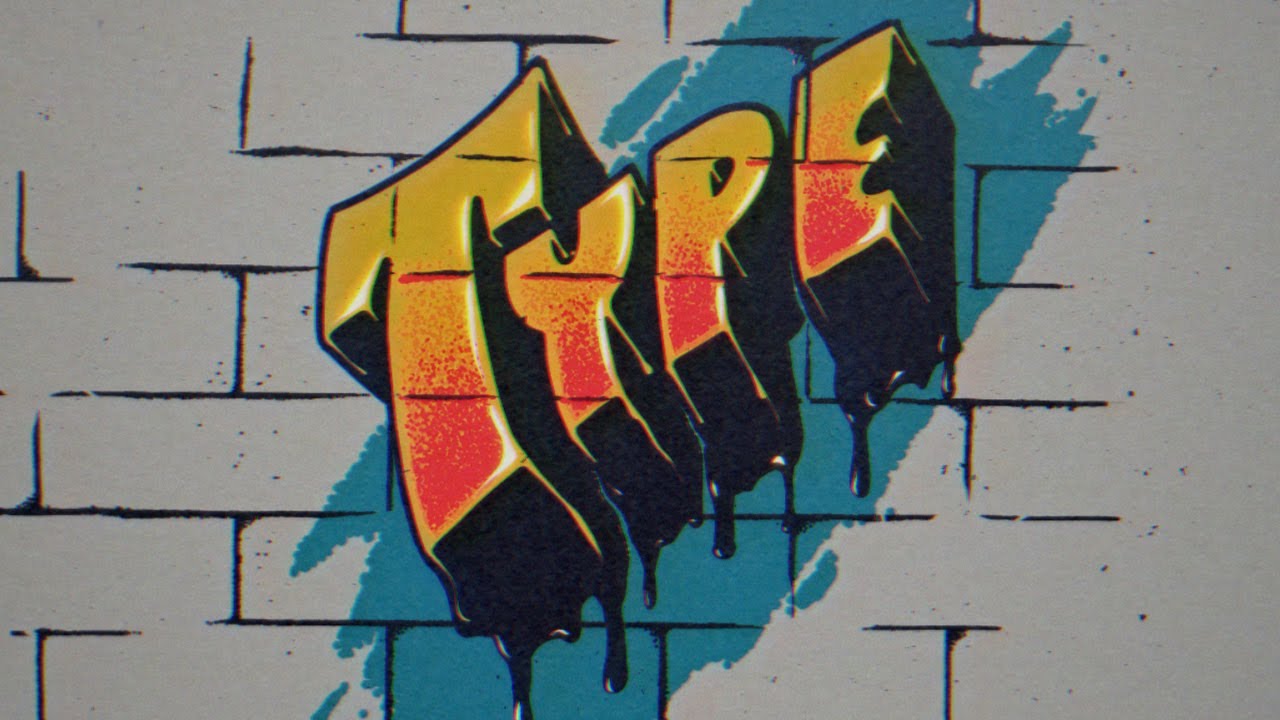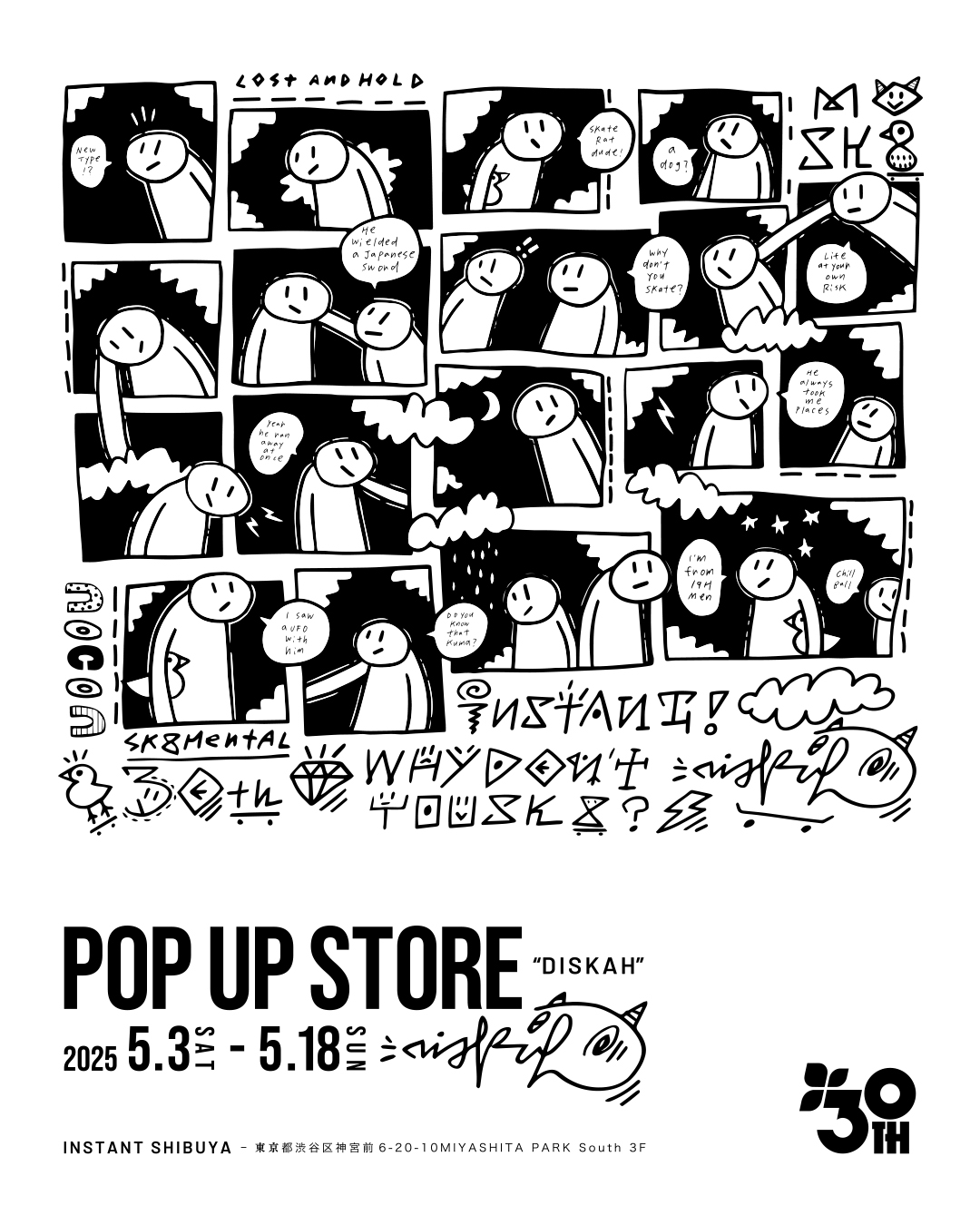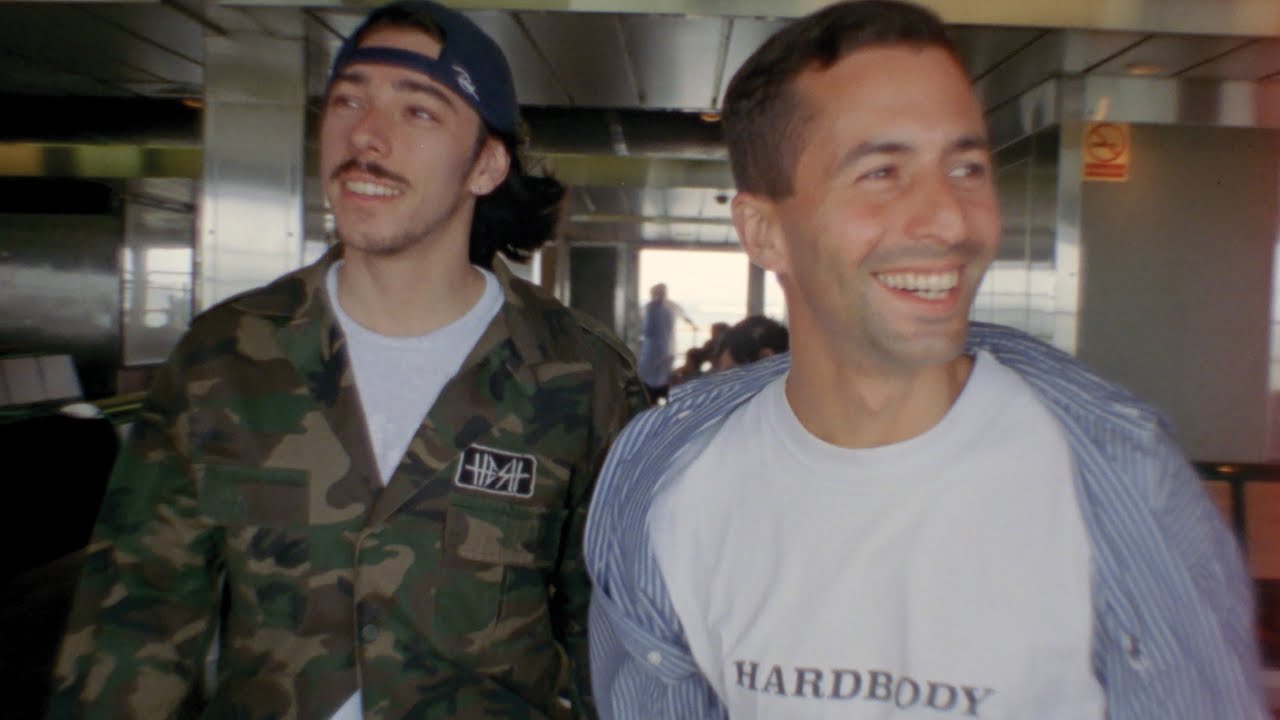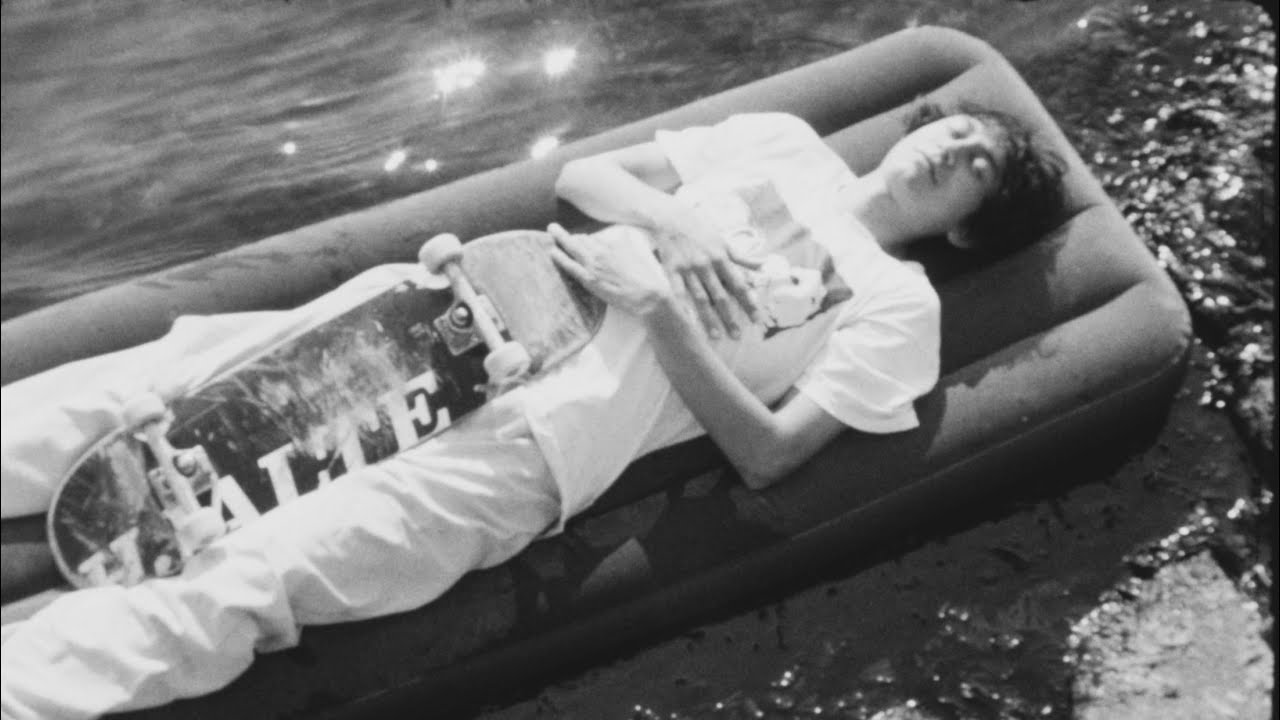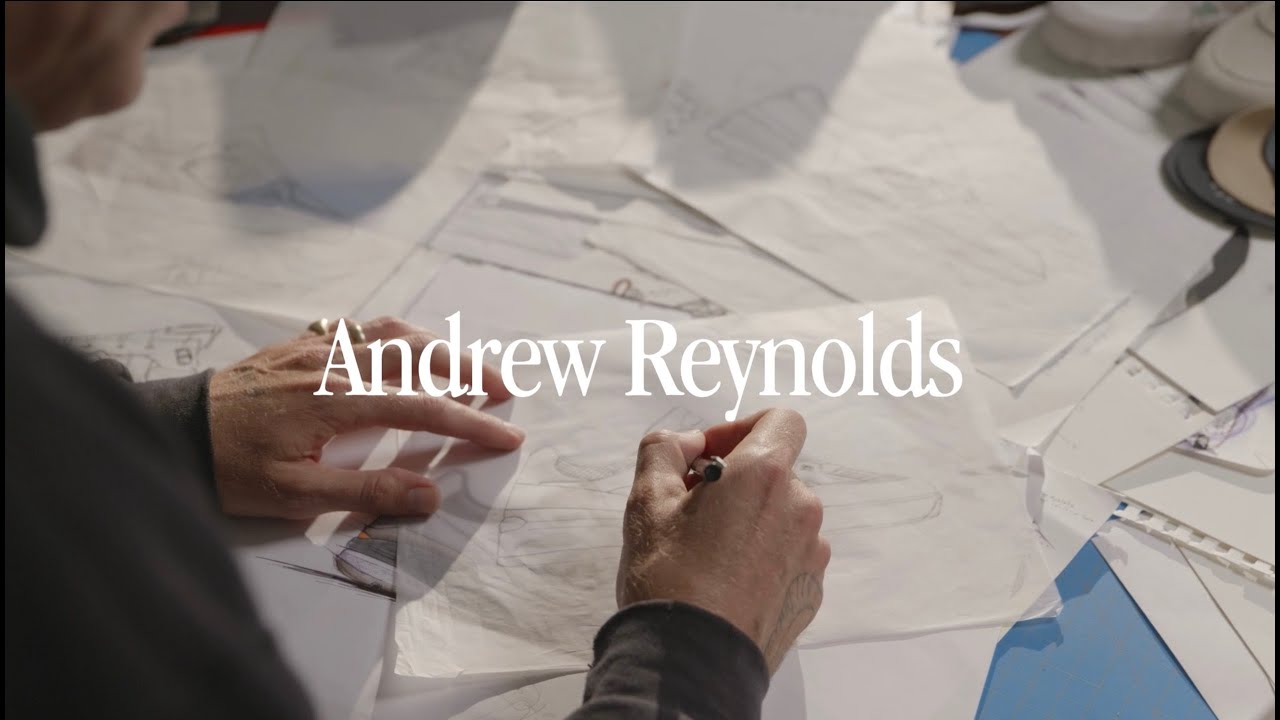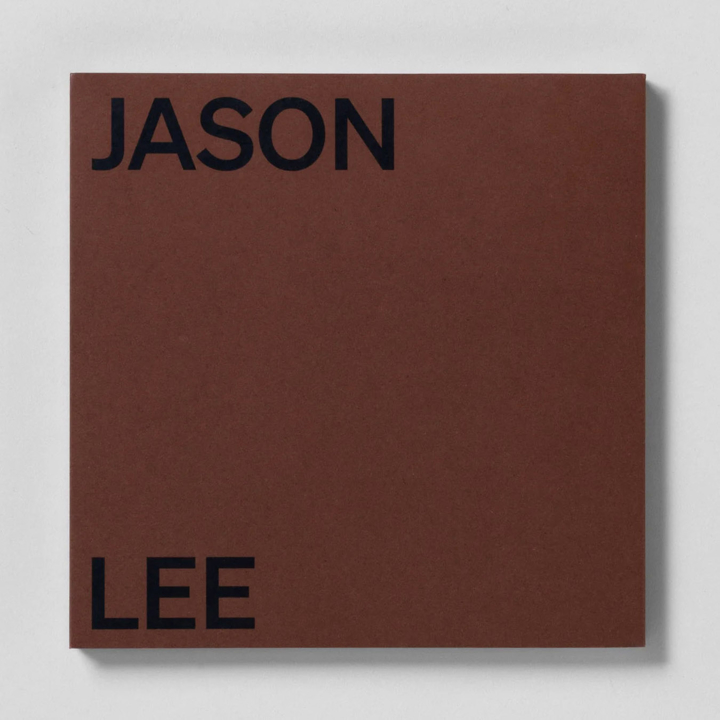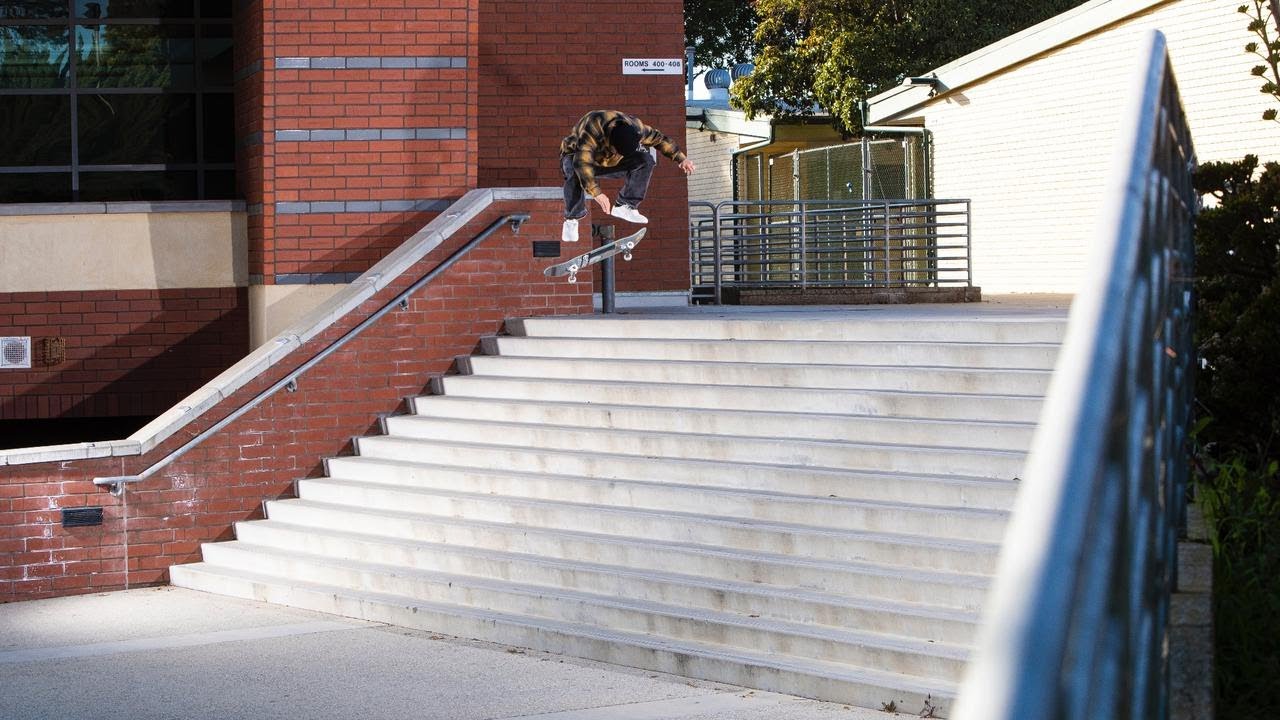Skate rock emerged along with skate movement in the 80s. Big Boys out of Texas was one of the bands that embodied it. Tim Kerr is the original member of the band and currently a visual artist. He has witnessed the early days of skateboarding and punk rock, and still active in his 60s. We got to hear stories that only the original skate rock could ever know.
──TIM KERR (ENGLISH)
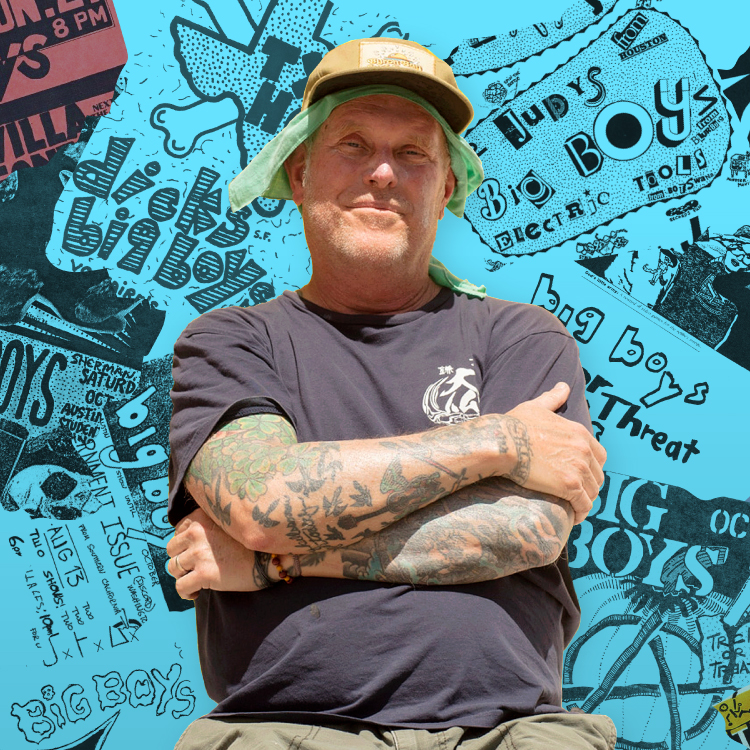
[ JAPANESE / ENGLISH ]
Words & Interview_Hiroyuki Wakabayashi
Photo_Yoshiki Suzuki
Special thanks_Golden Age
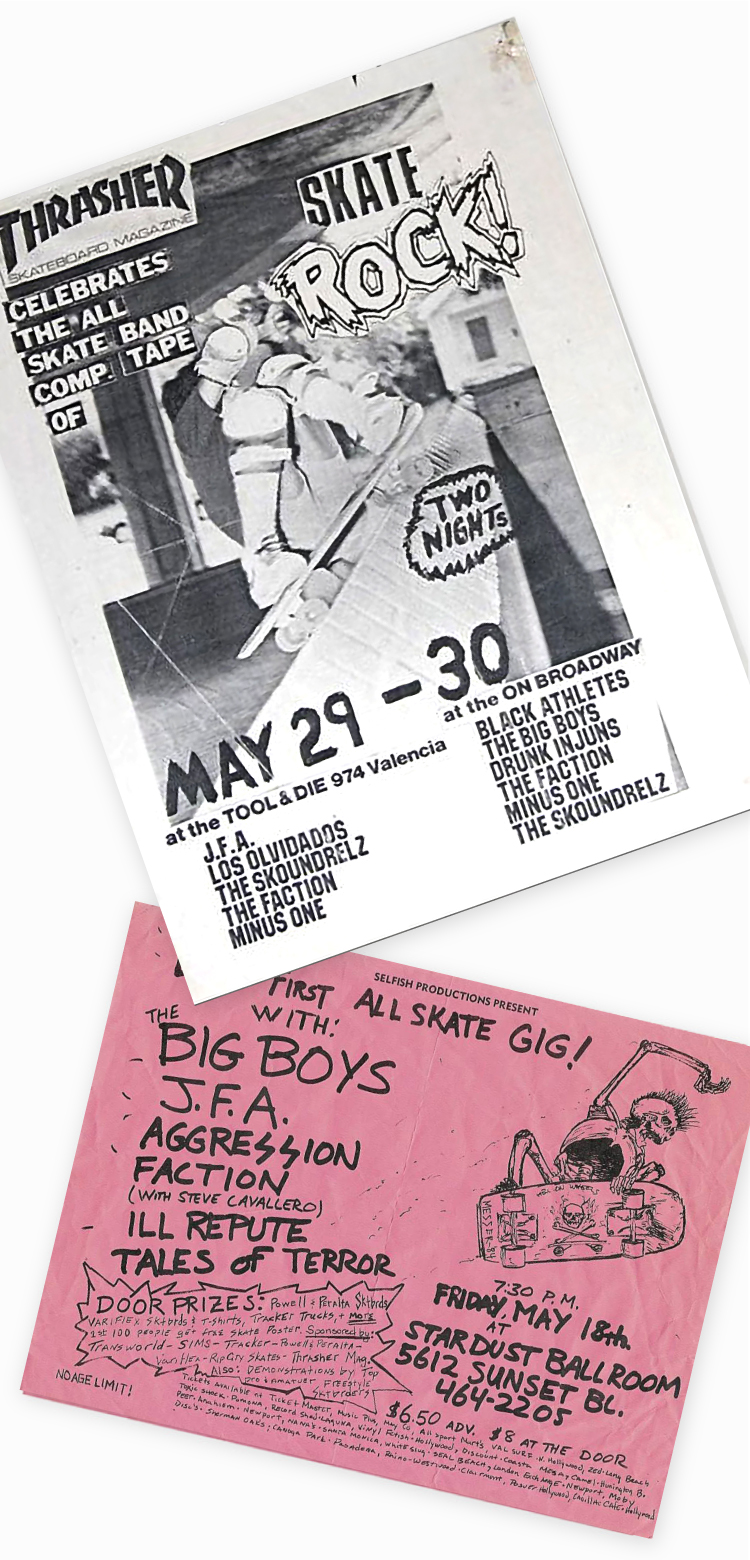
Skateboarding was born in the late 40s and became a major activity in the 70s. Having surfing in its roots, it evolved dramatically in the 80s. Among all the local skate scenes in America, Texas scene is something we should know about. Texas nurtured so many legends. Jeff Phillips, Craig Johnson, John Tex Gibson, Ken Fillion... People called it the "Texas Style." Texas plant was of course born in Texas.
In the 80s American underground music scene where all the crossover was happening, many of the important bands were from Texas. Dicks, MDC, Butthole Surfers and Big Boys. They all had strong sound and message. Texas was a place where racism was strong with KKK facilities. In the conservative climate, there was a musician on the stage wearing costume that anyone could tell that he's gay. It's that Texas' going-my-way and free-spirited mentality that we get inspired by to this day.
Big Boys was formed in 1976 in Austin, Texas. The sound crossover of punk, hardcore, blues and funk, and is still respected today. It was Big Boys that coined the term skate rock. The guitarist Tim Kerr and the singer Randy "Biscuit" Turner are both the face of Texas punk and skate rock scene. Biscuit of Big Boys and Gary of Dicks are known as openly gay musicians.
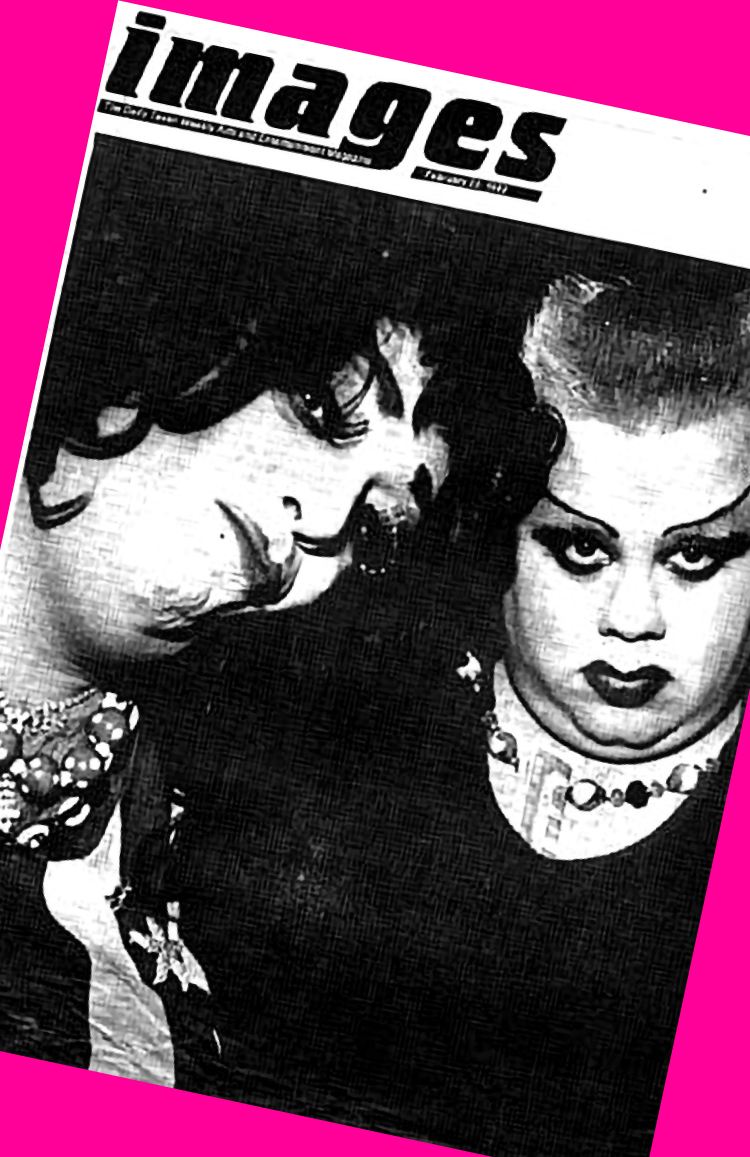
Zorlac was a Texas skate brand that was connected to hardcore punk scene. There were many Texas articles in Thrasher and TWS. It was pre-internet and we'd hear stories that seemed like an urban myth. Something like, "Almost all skaters in Texas have dread locks," or "Outsiders and colored skaters would get harassed." Once I heard from an American skater living in Japan that he got his dreads shaved off in Texas. Looking back, we all know that wasn't true but at the same time we can be convinced that those things could have happened. We were drawn to Texas scene and it was a total mystery. Now that 30 years have passed, never thought in my wildest dream that I'd be sitting with Tim Kerr asking questions.
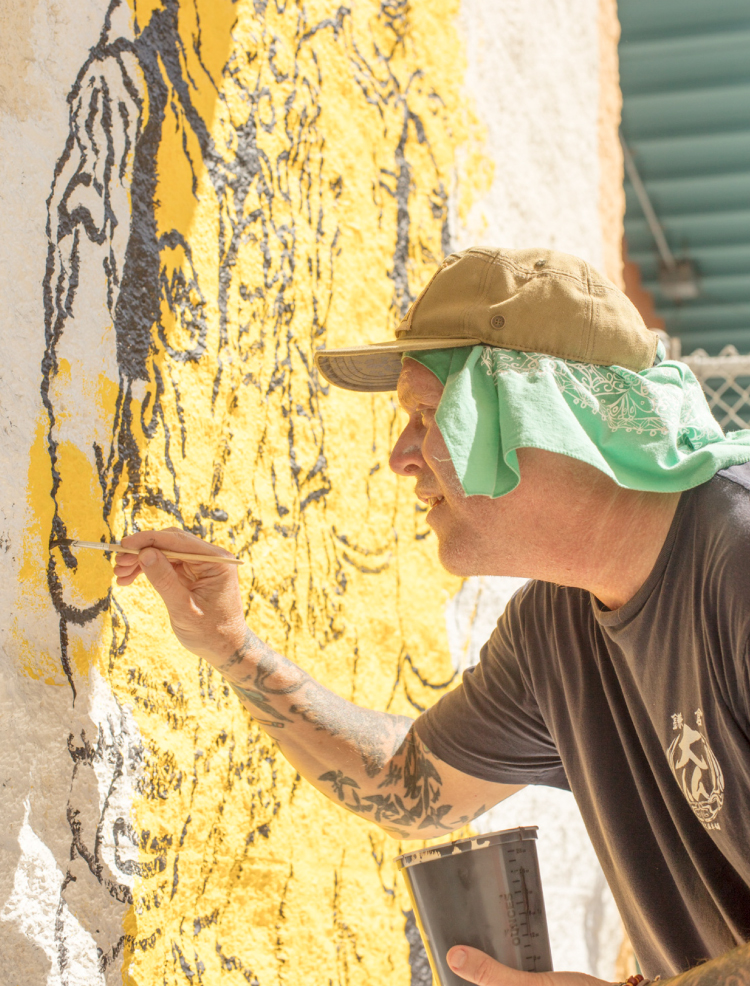
VHSMAG (V): Could you introduce yourself?
Tim Kerr (T): My name is Tim Kerr and I live in Austin, Texas. I grew up surfing and skating. Played music and did art since elementary school.
V: What was the Texas skate and punk scene like in the 80s?
T: Well, the skating was first. Skating was before the punk stuff. I remember that urethane wheels came out in 1974 from Cadillac Wheels. that's right when I went to Austin to go to school at the University of Texas. Austin is in the middle of Texas so it took four hours to get to the beach, so I couldn't go surfing all the time. So I started skating with a bunch of friends. We're talking 1974, '75. Nobody knew about the pump yet. Nobody really knew any of that. Just everybody skating. We'd go to this one ditch in Georgetown. Because in Texas and New Mexico, there's different places where we have a drainage ditches, and they're great.
V: What's one of the famous ditches back then?
T: Pflugerville. We all skated there all the time. But that was when we learned to pump. And we built a ramp in a friend's backyard but didn't put any flat because we didn't really know. It was about nine feet high. Just a bunch of friends, everybody skating, lots of different age group, kids and kind of adults and everybody. Skating wasn't cool at all back then, it was absolutely not cool at all. And you might as well be from Mars or Jupiter. And people are throwing things out of cars at you, they're yelling, they're just... It was the same with punk rock.
V: No one understood it back then.
T: Yeah. And we found out about a pool in Bastrop because everybody was kind of watching Skateboarder Magazine. That pool was 14 feet deep. And in 1976, I was skating in that pool, and I stuck in the gutter at the top, and went down and just crushed this whole arm. So I still have plates in my arm.
V: How did the scene evolve after that?
T: Probably around '77, '78 we started seeing Steve Olsen and Duane Peters in magazines, and people started to have crazy hair style. And they were kind of the first. But punk rock at this point, and even skating a little bit, has just got such a set uniform and rules and all. It didn't have that back then. It was all about DIY.
V: How about Zorlac?
T: By this point, Zorlac had already started up. Zorlac was Jeff Newton in Dallas. He started that all up in his mom's garage. You had Craig Johnson, Jeff Phillips, Dan Wilkes... and then Johnny Gibson was Houston. When Zorlac first started, it was kind of more the Dallas area people. Everybody was doing these contests but Craig and them wouldn't be in them. Everybody knew they were really good. Also back then everybody that skated was kind of born my size. So Craig and those guys where it's just this big tall... That was kind of unusual back then. That kind of added to the myth of Texas. We had these guys launch these crazy airs.
V: How did the punk thing happen?
T: There was a place in Austin called Raul's. It was the first kind of punk club happened down there. Beth and I, and Chris Gates who I skated with and stuff, we all went to go the Battle of the Bands. It was the first time we've really seen punk rock kind of stuff. And when we were there, the music was kind of second. That was okay. What I thought was the coolest thing ever, was that there wasn't a boundary anymore. It was like the band and the crowd were the same thing. And there wasn't that barrier like there is now. Everybody in the crowd was either in bands or were doing fan zines, or they were taking photos. And it was just this amazing community of people. I thought this was the greatest thing ever.

V: That's awesome.
T: One day, Chris and I were out at Pflugerville skating. And we decided like, "Well, let's see if we can play Raul's one time. Let's see if we can do it" kind of thing. Because I played guitar and Chris played guitar. Chris was maybe 10 years younger than me. He played ACDC, Ted Nugent, kind of what Junkyard ended up playing, which he was in later. I was playing all this crazy acoustic tunings, like John Martin. So we flipped a coin to see who was going to play bass. Biscuit was a good singer and he could skate. Skate rock didn't even exist. It was just, we all skated. We are all friends. But the very first show wasn't at Raul's. We practiced maybe twice and somebody called, because Biscuit was kind of this character that everybody knew and they said, "Hey you guys want to play this party? Well, what are you called?" I think we had like three names that we had kind of finally decided and I just said, "Well, Big Boys." It was the same as skating. It was a really small scene so everybody had no idea what was going on.
V: You just simply played music, skated and created.
T: Yeah. And in 1981 Thrasher started. The first two vines of Thrasher, it was a zine. It was just this paper zine that came out. So Thrasher had just come out, we were going to go up to San Francisco to play. But with us, it was more like, "Oh, we're going to go to thrift stores, we're going to go skating. And then we got a show, but then we're going to go skating." It's hard for people now to visualize or even understand that at this point in time, you were never going to be on the radio. There was no magazines writing about this stuff. It was from '85 on, when that thing "I'm going to make money with music" happened. It was the same with skating. So Beth wrote a letter to Thrasher because it was basically a fan zine. It was like, "Hey, we're coming to your town, let's go skate. Are there any ditches?" So they wrote back, we met. Bill Daniel has photos, we were in a parking garage with Kevin J. Thatcher, Mofo, Rick Blackhart, all that whole crew. Then MoFo wanted to do an interview with us. At first it was going to be the traditional type, but then he decided to do a cartoon and and his story type of thing. And he wrote Wild Riders and Boardz article. In his cartoon, we had a pet armadillo and we played "skate rock." We just all skated and we played music. We were the first, but then in reality, JFA is kind of the first one prying at them to be going, "we're a skate rock band."
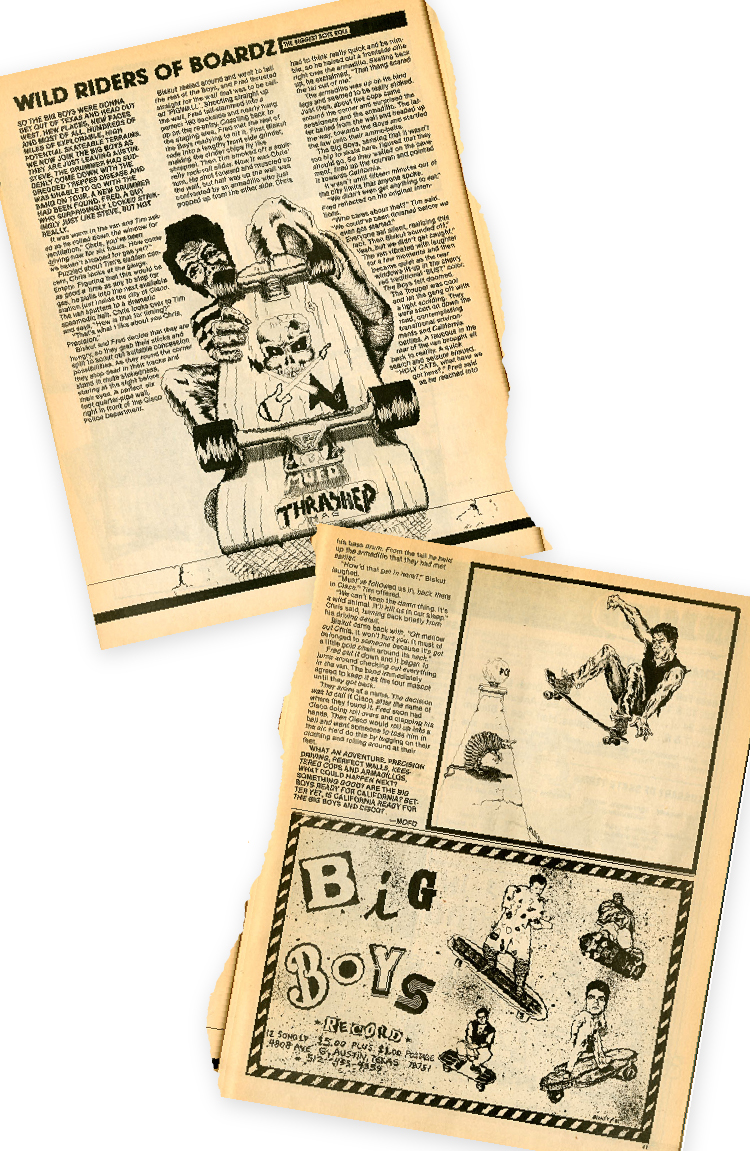
V: What's skate rock to you?
T: I think it's attitude. It's no rules, like just coming from your heart. Sincere. That's to me ... Can't speak for anybody else. Once again skate rock has turned into, to some people, like, "Oh, you got to look like this and you have to wear Vans..." It's just we all skate. So to me it's skaters playing music. You know, skate bands.
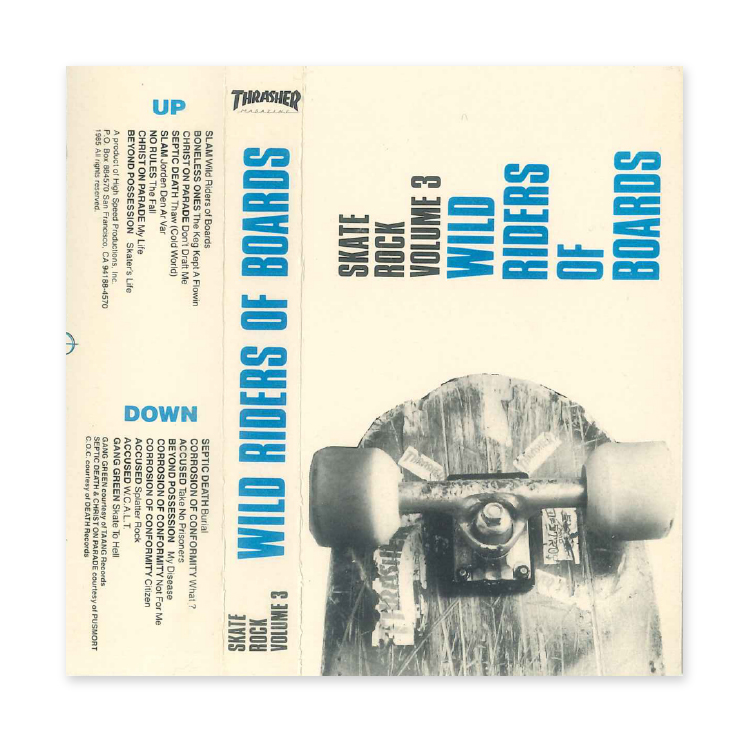
V: Tell us about the board you guys had from Zorlac.
T: It was Jeff. But do you know how Zorlac got its name? Jeff skated with this guy that was kind of old. You know, he was just this kind of crazy, goofy character and stuff and the guy always said he was from the planet Zorlac. So, when Jeff started up the company, he called it Zorlac. And then the graphic of that board isn't Pushead. Everyone thinks it's Pushead, but it's not. Biscuit did the skeleton, Chris did the heart. We used to draw on our boards. So they drew a sacred heart and then I would have that banner that's underneath like the Dogtown and then the rat. So it was the three of us that drew it.
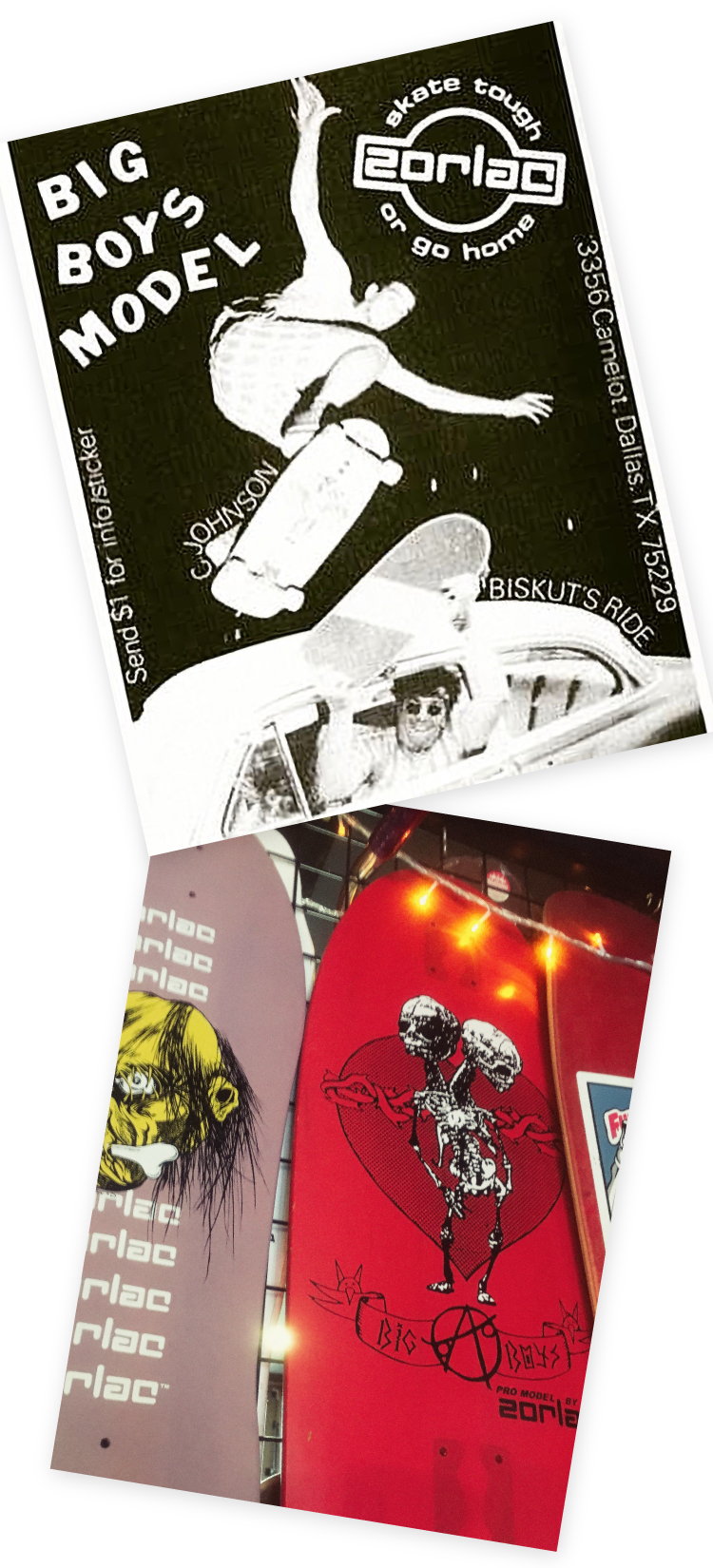
V: Do you still skate?
T: Yeah. I still skate hills, ditches and banks. But my big pet peeve is that everything at skate parks got that pitch. So you can't go up and just slide and roll back in smooth. You're going to kind of hang and drop. Drives me crazy.
V: What's skating to you?
T: It's like air. It's like breathing. It's just something you do. I mean, art, music, skating, surfing, all that stuff. It's just what I do. It'd be like me asking, "Well, what do you think about air?"
V: What do you think about skating being in the Olympics?
T: It's the same thing as punk rock, when it all started. You either had the people like Minutemen, Minor Threat, all these bands that were doing shows for kids, doing it for the love. Or you had the bands that were like, "We're going to make money now. I want to have a name." So two different mindsets, same thing with skating. I don't know when the cell phone film stuff started, where everybody trying one trick to get sponsors. But that's just not what it was, that's not what it is to me. It's just something you do. It's not a sport. It's something I can go out there and just not worry about what people think There is no points going on. It's the same thing with music, not worried if somebody thinks I can play or not. I don't really care. I'm doing what I want to do. I think it is funny that it's gotten really legit now. Because especially in America, if they ever had something about troubled kids or somebody's on drugs or something, the kid always has a skateboard.
V: What's next for you?
T: One foot in front of the other. Stay wide open and do stuff you don't have a clue what's going to happen next. If one person walks away from this interview or any of this stuff and goes out and does something, that's great.
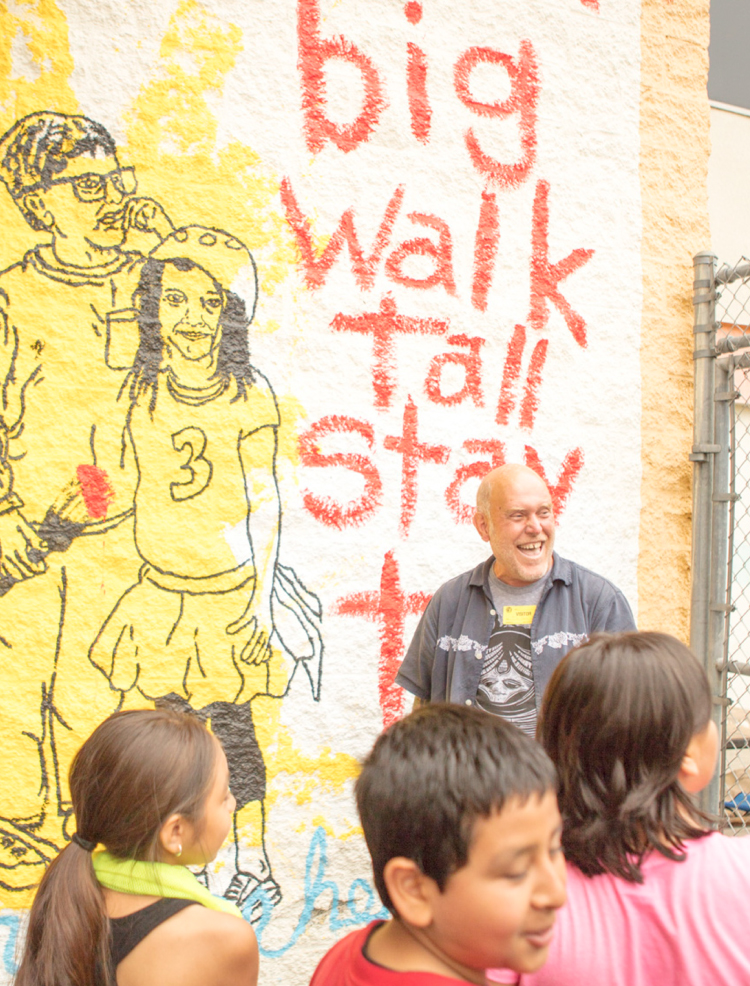
V: Okay, message to Japanese skaters?
T: Have fun. Do what you want to. You should definitely do some sort of self-expression. You should figure out, and don't try to draw like anybody else, don't try to skate like anybody else. Just do what you do, and if you're smiling, then there it is. It doesn't matter what anybody else... If it puts a smile on your face, then that's cool.
Tim Kerr
@movetk
Born in 1956 in Austin Texas. Tim is the guitarist of the original skate rock band, Big Boys formed in 1976. He was one of the crossover sound pioneers of punk, hardcore, funk, etc in the 80s. Currently he's a visual artist and respected as a painter. He's collaborated with Krooked and he's been holding group show called Tim Kerr & Friends.
